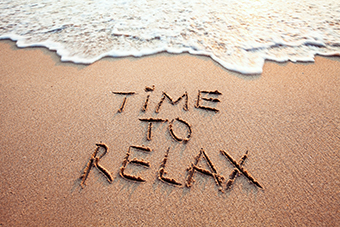5 Holiday Tips for Mental Health

The winter holidays leading up to the New Year can bring joy, celebration, and stress, especially for people with mental illness or in recovery. This season, we want to encourage you to remember to have compassion for yourself and for whoever you may be around this holiday season.

No matter how you are feeling during this time of year, remember that there are many ways to strengthen your ability to adapt to change, assume the best intent in others, and take care of your needs.
Here are five tips to keep your mental health a top priority this season.
Tip #1 – Practice Self-Compassion
It is easy to have expectations for ourselves or an event, particularly when there is external pressure. Many people report having elevated levels of stress during the holidays, with expectations to spend money on gifts, “be merry,” and plan social gatherings. It can be tiring and high-pressure, at times, to perform.
Practicing self-compassion means being aware of your internal dialogue and expressing kindness to yourself. It sounds trite but it is true: when we love ourselves, we are more able to give love to others too.
What does practicing self-compassion look like? As one example, if experiencing high anxiety at a dinner party, a kind thought toward yourself could be, “Dinner parties with relatives make me anxious, and that’s okay. I love myself and sitting here is awkward for me, but I’m still showing up.” Compare this to a harsh thought in the same situation, such as, “Why am I so awkward? I hate this about myself.”
Tip #2 – Recognize Loneliness
Sometimes loneliness shows up when we least expect it. As we explore in our article on Holiday Loneliness, many people experience sadness during winter, especially when they do not feel connected to others.
Pets can help people feel less alone, but not all of us can adopt a pet. What else can we do when loneliness arises? The first step is to honor reality: if you feel lonely, honor that. Then, do something about it.
Many people find social connection again by joining a weekly or monthly volunteer group, a club, an online interest group, or a public talk. There are platforms such as Meetup that try to help people with similar interests find communities to join.
Tip #3 – Bring Movement to Each Day

Anyone who has experienced physical therapy might be familiar with the saying, “movement is medicine.” Mindful movement can lower stress and anxiety, according to a new study from researchers at Penn State. In this study, when students were walking to class, they reported lower levels of stress.
Looking ahead, are there opportunities for you to bring movement into the holidays? It does not need to be a vigorous run or swim. A walk around the block might be your new favorite part of your daily routine. Yoga, stretching, and dancing are three types of movement that are worth a try too.
Tip #4 – Phone a Friend

Feeling loneliness during the holidays is normal. When people feel connected to someone else, they are more likely to experience well-being and endure adversity. Whether a long-term companion or a new neighbor, people are all around who might be able to offer meaningful connections.
Having a friend to call during “holiday chaos” can bring you levity, perspective, and gratitude during stressful moments. For example, you can swap stories with a friend about your child’s temper tantrum, rather than feel alone in a challenging parenting moment.
Distance does not have to be a limiting factor for connection, especially with the availability of calling via FaceTime, Zoom, Skype, and Google Hangouts. Or if you prefer a phone call, then it’s even easier to make this connection happen.
If you lost touch with a friend over the last few years, maybe this is the year you ask if they are free for a 30-minute call. By giving a set time limit, people may be more likely to find space in their schedule–and you may end up talking and laughing for more time than you planned!
Humans who feel connected to someone–even if it is only to one person–are more resilient and able to adapt to the changes life brings.
Tip #5 – Ask for Help
When people express vulnerability, an opportunity for deep connection forms. Ever notice how people love giving advice? Similar to Tip #4, and only if you feel comfortable, consider asking a friend or companion for advice about something causing you stress this winter.
Maybe you are navigating seasonal depression and struggling to find the motivation to go to a family gathering. Ask a friend if they have tips from personal experience or from helping someone else in their life, that they are open to sharing with you. If you are religious, consider asking your spiritual advisor for guidance. Or maybe you would benefit from a licensed therapist for support. Options abound.
It can be hard to ask for help. The art of asking requires admitting to ourselves that we are not as independent as we think. At the core, we are social beings who need to feel connected and supported by a wider network than ourselves.
Mental Health Services Help People Thrive
If your challenges feel too big to handle by yourself, we are here to help. At Psychiatric Care Center, we offer services to help you find self-compassion and balance.
For depression help, anxiety help, or to learn more about the tools and insight offered by our licensed therapists, you can request an appointment or call us at (530) 221-7474.





